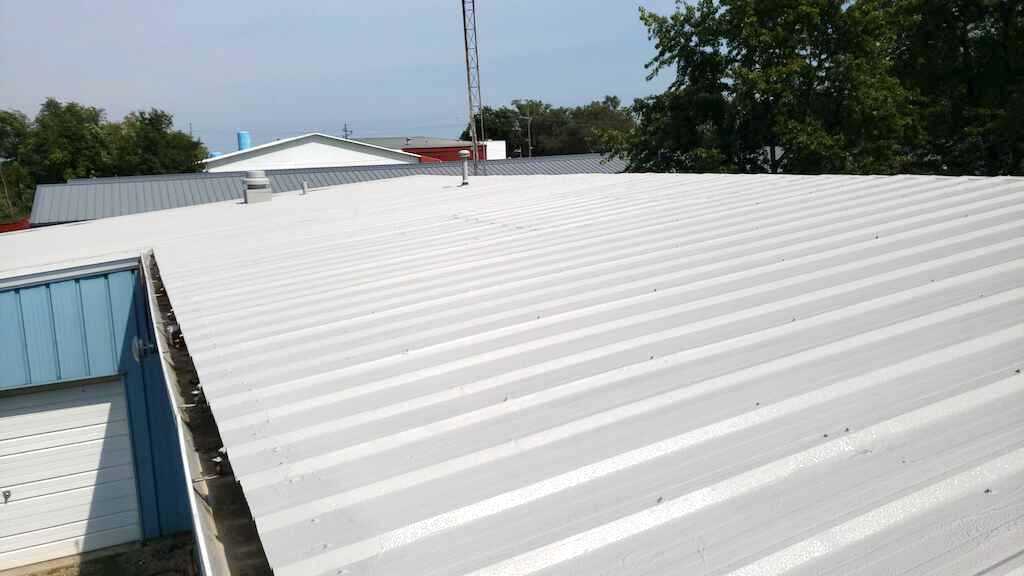Your average commercial roof lasts anywhere from ten to forty years.
But why such a vast range of time?
Although the lifespan of a roof varies based on several factors, the material of the roof is the biggest determining factor.
Read on to learn how long you should expect your roof to last and what shortens or extends its life.
The Lifespan of A Roof
You’ll find that several things affect the average lifespan of a roof. Beyond the roofing material of your roof, things like ventilation, installation, slope, seasonal weather, and maintenance all impact your roof.
Material
For a quality commercial roof, the material you select is everything. You have quite a few options which range from cheap to cost-effective to expensive.
All of your roofing options come with other benefits, too. The following roofing materials impact the lifespan of your roof:
- EPDM (ethylene propylene diene terpolymer) ranges 22 to 35 years
- TPO (thermoplastic polyolefin) ranges 22 to 30 years
- PVC (polyvinyl chloride) ranges 20 to 30 years
- Asphalt roofs range 20 to 40 years
- Metal roofs range 30 to 45 years
Although your current roof may not be in need of replacement, there are other material options to extend the lifespan of a roof you currently have installed.
Asphalt Roofs
These are the most commonly used materials in any type of roofing. The lifespan of asphalt shingles is shorter than metal roofing and is also far less expensive. The downside to a shorter lifespan of a roof like this is that it will need to be replaced sooner.
Unlike with metal roofing, you do have the opportunity to extend the life of your asphalt roof with a roof layover. There are pros and cons to this, too. You won’t have to replace your roof as quickly, but you won’t be able to prevent any water leakage or winterproof the roof either.
Metal Roofs
Although metal roofs are more expensive, their longer lifespan is certainly worth the investment. If your metal roof needs restoration, you can do this without halting your business operations. And, you’ll have the added bonus of saving money with restoration instead of replacing an entirely new roof.
Slope
Even with materials primarily determining the average lifespan of a roof, other factors like slope impact it, too.
The flatter the roof, the more likely you are to have water collect in a pool and stay there. When water sits on a flat metal roof, restoration can save you replacing the whole thing. We at Williams Roofing and Construction have just the solution.
As for other roof compositions, water will find the lowest point in your roof and collect there until it evaporates. If it doesn’t dissipate quickly enough, especially depending on the time of year, leaking may occur.
Installation
Aside from the material you select, installation is easily the second most important aspect of the lifespan of a roof. If the installation is flawed, you’ll have to bear the consequences (i.e., future leaks, frequent repairs, replacing the whole roof).
Cost-effective doesn’t guarantee less headache. If you put in the time to extend the life of your roof before you install it, you can save yourself a lot of money in the long run.
PVC roofs are energy efficient. Metal roofs can be treated with a coating to protect from water or elemental damage. Spray foam roofing is a great alternative, too, as it’s water and UV ray resistant.
Ventilation
No matter your roofing material, ventilation is an essential part of extending the average lifespan of a roof. A well-ventilated roof prevents moisture and heat from building up underneath.
Hotter temperatures in summer months will bake roofing materials, causing natural wear and tear. If there is an attic or storage space is beneath, a poorly ventilated roof will cause a pocket to hot air to sit in the space.
Any built-up moisture can lead to rot and ruin, too. If the moisture from a rainy season doesn’t dissipate, a water leak might be the least of your concerns. Instead, you might have to deal with mold.
Maintenance
Even with proper ventilation and installation from a reliable company like Williams Roofing and Construction, maintenance is still crucial to preserving the lifespan of a roof, no matter the material.
Routine inspections can prevent small problems from becoming big, expensive ones later on. Not only do you want to avoid the possible interruption of new roof installation, but you also want to keep the building safe.
A poorly maintained roof may lead to dangerous or toxic molds or leave a roof more susceptible to collapse. Neither of these is safe for anyone who has to work under said roof.
Weather and Seasons
Part of quality roof installation and maintenance means factoring in weather and seasonal effects. This means your or your roofing company has thought ahead to preserve and extend the lifespan of a roof.
Heavy rains or snows, hail, and higher winds are important concerns to address early on. Applying the right protective coating, selecting the best slope, and ensuring proper ventilation all will help circumvent any weather concerns later on.
Find a Quality Roofing Company
The best way to ensure the lifespan of a roof is to find a roofing company you can trust. We at Williams Roofing and Construction have a motto: unless you are completely satisfied with our work, we have failed.
We will work with you from start to finish on your roof installation, restoration, and maintenance so that you receive the best quality service possible. Our commercial roofing services are guaranteed to last.
Please check us out for more helpful information about your roofing needs. Don’t hesitate to contact us with any questions you might have about your roof and the services we provide.

